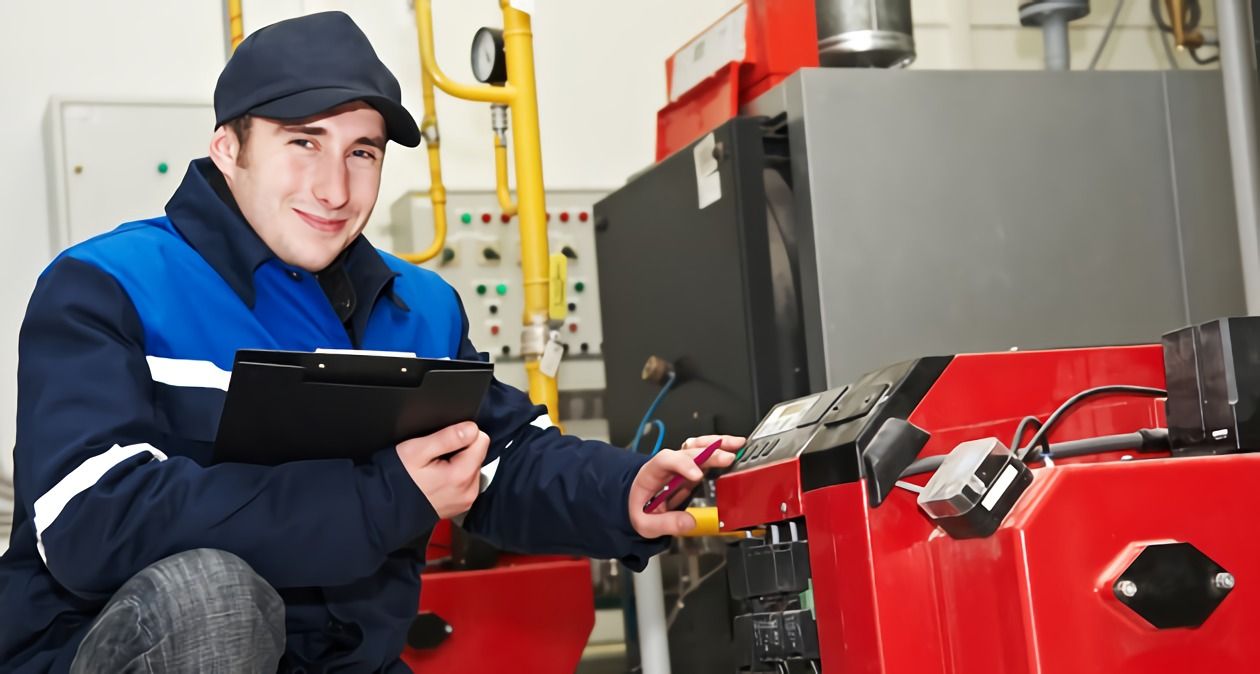RSI is a Great Training Option for Everyone
Learn more about how we can prepare you to advance your career.
Heating, ventilating, and air conditioning (and refrigeration) systems or HVAC/R systems are critical for maintaining high air quality throughout buildings. These systems are responsible for controlling the temperature and climate throughout the building, which involves heating, cooling, and ventilating outside air, as well as returning air back inside. The technicians who help installing and maintaining these units optimally while also addressing and solving any problems that might arise, are a critical part of the process.
Where and when do HVAC/R Technicians Work?
As the Bureau of Labor Statistics1 describes, HVAC/R technicians, mechanics, and installers can work in residential homes, schools, hospitals, office buildings, factories, stores, and just about any other facility that requires climate control. The technicians will spend most of their time indoors, although sometimes they will be required to work on outdoor heat pumps regardless of the weather conditions. Technicians can either work on service calls throughout the day or spend their time assigned to specific sites where they work.
Schedules are typically full-time, but the nature of their work means that having hours outside of the typical office shift is common. Those who work in buildings, such as apartment buildings that run 24 hours a day, may have night shifts and weekend shifts. There are dangers associated with the occupation: There is risk of injuries, such as shocks or burns as well as injuries from the refrigerants, which can be hazardous.
What are the typical duties of an HVAC/R Technician?
HVAC/R technicians must be able to read and follow blueprints, according to Sokanu.com. These blueprints will be responsible for helping the technician follow and understand the HVAC system at hand. The plans will also be used by the technicians in order guide the installation of new HVAC systems.
HVAC/R technicians must also understand how to connect the various parts of the HVAC system. This includes connecting the fuel lines, the water supply lines, the air ducts, the fans, and other critical parts. They will also need to understand how to safely and properly install electrical wiring. Furthermore, they have to be able to test whether the electronic parts are working correctly.
Get Started on the Path to a New Career
Fill out our form to learn how we can help you change your life.
In addition to testing the electrical components, the technicians will also be responsible for testing the overall system and performing regular maintenance to protect it from potential problems. They will also have to test individual parts of the HVAC/R system to see if there are any parts that have become worn or defective. Technicians are the only ones who may replace any parts that need to be changed.
Effective energy usage has also become an increasingly important part of HVAC/R work. Building operators are considerably more concerned with concerning energy with the rising costs of power as well as reducing energy consumption from a moral standpoint. Technicians are responsible for determining the energy usage of the HVAC/R system and monitoring it overtime. They will also make suggestions for how to improve the system to help the building reduce its energy usage.
Skills and Training Required
According to the Bureau of Labor Statistics2, HVAC/R technicians will have to hone a number of different skills, including mechanical skills, math skills, time management skills, and physical strength. Although technicians typically are not required to attend college, vocational training programs are usually desired by employers. A well-rounded HVAC/R training program includes classroom instruction as well as hands-on practical training.
HVAC/R systems are keeping a variety of buildings cool and dry, thus increasing people’s comfort and business’s efficacy. The technicians responsible for these systems have the important job of making sure that the units work efficiently and continue to maintain the ideal climate. This requires training, as well as the careful development of relevant skills. Those interested in entering the field should carefully review the above information to begin preparing for entering this exciting field.
Additional Sources
1. http://www.bls.gov/ooh/installation-maintenance-and-repair/heating-air-conditioning-and-refrigeration-mechanics-and-installers.htm#tab-3
2. http://www.bls.gov/ooh/installation-maintenance-and-repair/heating-air-conditioning-and-refrigeration-mechanics-and-installers.htm#tab-4
This blog has been labeled as archived as it may no longer contain the most up-to-date data. For a list of all current blog posts, please visit our blog homepage at https://www.rsi.edu/blog/




